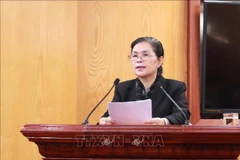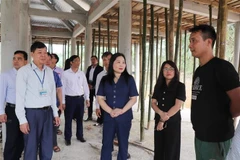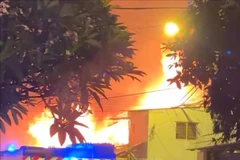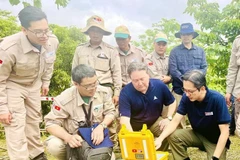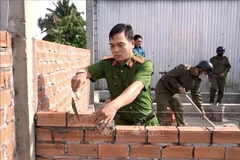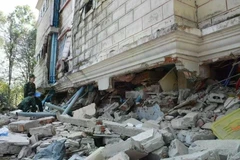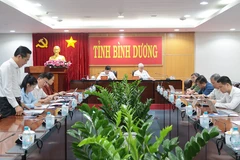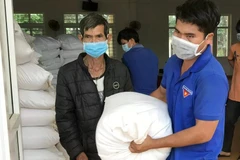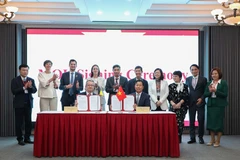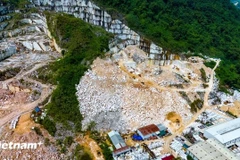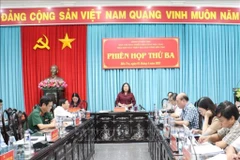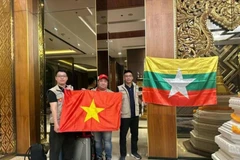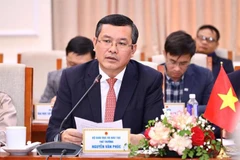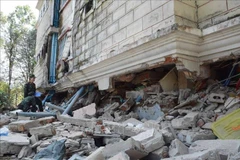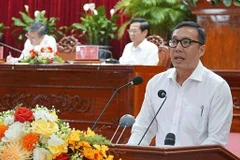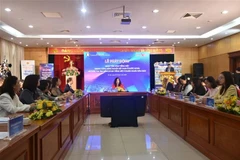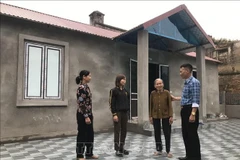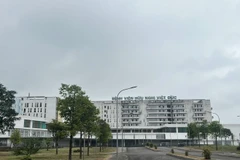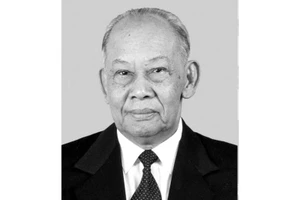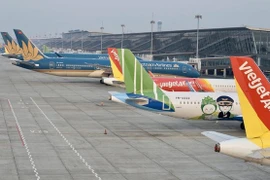Hoang Ngoc Viet, deputy director ofThua Thien Hue Province's Department of Agriculture and RuralDevelopment, said the provincial Aquaculture Division, in co-ordinationwith local authorities, had encouraged fishermen to set up 14 teams and40 groups for fishing logistical services.
This would enable offshore fishermen to operate for a long time at sea and save fuel and operational costs, he added.
Vietsaid that groups of fishing boats equipped with long-rangecommunication systems could facilitate inter-boat communication on thelocation of fish stock.
The division proposed that authorised agencies create a way to open and close the estuary for each kind of boat.
Thiswould allow boats of more than 90 HP to go to sea early because theyhad modern equipment and could travel at a high speed safely, he said.
Itwas also proposed that they continue subsidising fuel costs and provide100 percent of the funds to buy annual insurance for fishermen and 30percent of the funds to insure the fishing boats' hulls.
NguyenDuc Cuong, chairman of Quang Tri Province's People's Committee, said theprovince had allocated 585 million VND (27,900 USD) to help localfishermen buy or build a new fishing boat, replace the boat's engines,and supply fuel-saving services for fishing and aquaculture.
Support has also been given to provide insurance to fishermen and boats with at least a capacity of 40 horsepower, he added.
Hesaid that the provincial Division of Agro-Aqua-Forestry ProductsQuality Management had organised 12 training courses on knowledge offood hygiene and safety on fishing boats in seven coastal communes, withthe participation of more than 600 fishermen who were boat owners.
HuynhVan Minh, a 54-year-old ex-fisherman in Nghia An Commune in centralQuang Ngai Province's Tu Nghia District, said that he spent 13 millionVND (620 USD) to install a long-range communication device to be able toeasily contact his family's three fishing boats.
Minh's decisioncame amid a shortage of means of long-range communication in thecommune, where there were only two such devices, called Icom, installedat both ends of the commune five years ago.
This has forcedrelatives of local fishermen to travel a long distance to inquire aboutthem when they are offshore. They have to wait a long time because thecommune has a large number of fishing boats.
Minh said the devicedid not only provide weather information and help him keep track ofeach of the fishing boats, but also enabled him to actively regulate theboat fleet, which has dramatically raised the economic efficiency ofeach fishing trip.
Other fishermen in the commune followed inMinh's footsteps by sharing money to equip themselves with long-rangecommunication devices.
The commune also saw the establishment of38 self-help groups consisting of 400 offshore fishing boats, with eachhaving eight to 12 boats and led by a veteran fisherman responsible foroperating the group.
When fishing boats operate at sea, theseveteran fishermen will use Icom to inform others about weatherconditions and dispatch group members to give support in operations orin case of emergencies.
The device runs for communication purposes three times a day in normal weather and around the clock in stormy conditions.
TranThu, a group leader in Tan Hai village, said that to lower fuel costs,some groups sent a couple of boats to go to the sea first forexploration instead of all departing at the same time.
When afish source is found, the boats will inform them of the specificlocation, and the remaining fishing boats will head directly to thesite.
Huynh Tan Nghia, a boat owner, said that with theexploration time shortened, the cost for each fishing trip had fallen by20-30 million VND (950 - 1,400 USD).
A group of 10 boats wouldspread out to cast nets on an area with a circumference of 100 nauticalmiles, which has increased the chance to find fish stock, he added./.
